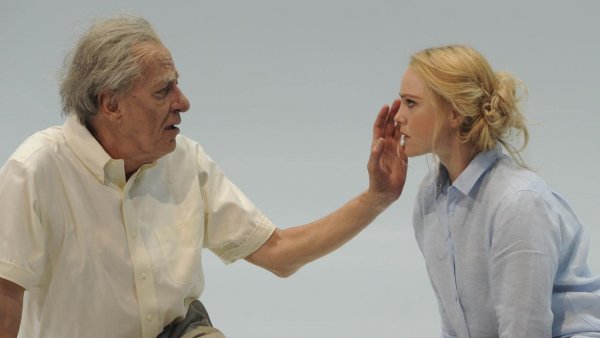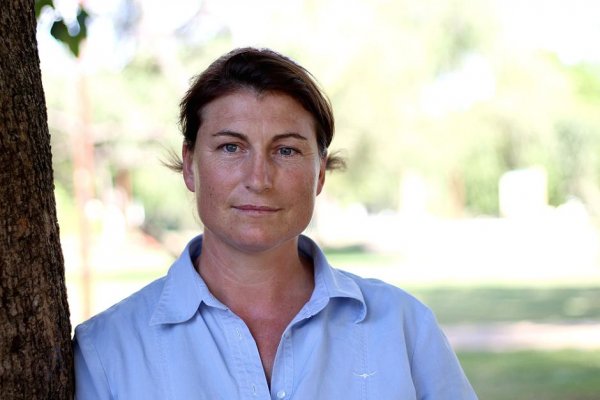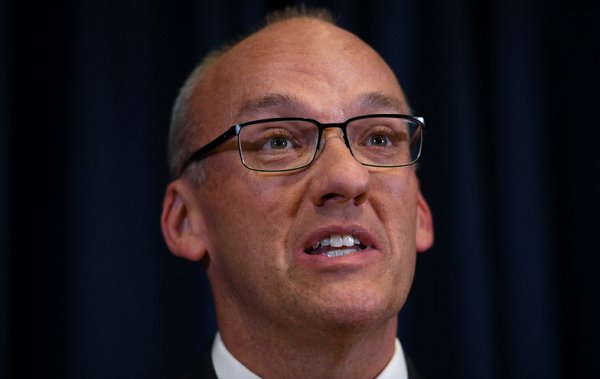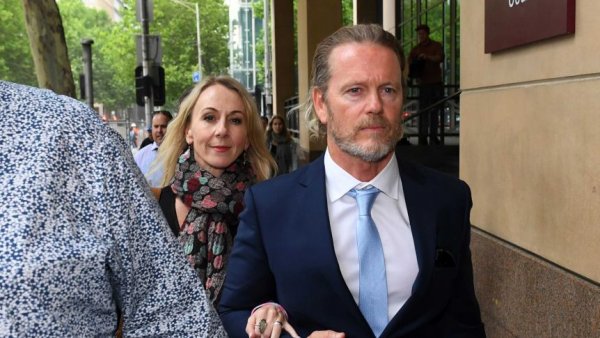Australian journalists have long been critical of our defamation laws and their “chilling effect” on reporting sexual harassment and assault stories in the context of the #MeToo movement. Several high-profile men who have been the subject of #MeToo allegations – including Geoffrey Rush, Craig McLachlan and Luke Foley – have launched or threatened defamation cases against publishers, journalists and sexual harassment survivors.
The threat of defamation action by an alleged perpetrator effectively silences survivors and journalists from reporting #MeToo allegations because they face substantial damages payouts if they are found to have defamed an alleged perpetrator.
Last week, New South Wales introduced changes to defamation law that will make it easier for journalists and media organisations to publish #MeToo stories. However, the changes to the law could also harm sexual harassment survivors.

Geoffrey Rush and Eryn Jean Norvill
Journalists and media organisations claim that it is almost impossible to report these stories – particularly against high-profile wealthy men – because the defences that are available to a publisher are very difficult to prove in court.
These obstacles were dramatically on display in Geoffrey Rush’s defamation case against Nationwide News, owners of The Daily Telegraph, which published stories alleging sexually inappropriate behaviour against an actress later identified as Eryn-Jean Norvill in the context of the Sydney Theatre Company’s production of King Lear. Rush immediately sued the newspaper and the journalist, Jonathan Moran, for defamation after the stories were published in December 2017.
Initially, the newspaper argued the defence of qualified privilege, where the publisher must prove that the publication was in the public interest and justifiable for encouraging public discussion or understanding of democratic processes.
This defence is rarely successful when used by media organisations. They withdrew it when, several months into the litigation, Norvill agreed to testify. Norvill’s participation made it possible for the newspaper to argue the truth defence – that the stories were substantially true.

Catherine Marriott
The truth defence is also extremely difficult to prove where the media is reporting sexual harassment stories, because the behaviour typically takes place in private and the evidence is usually one person’s word against another. The Court found inconsistencies in Norvill’s testimony and without corroborating evidence, the truth defence failed. It is widely believed that the Rush defamation case has consolidated the chilling effect of defamation law on #MeToo reporting in Australia.
The changes to defamation law in NSW, which are expected to be introduced in all states and territories, include a new defence for the publication of matters ‘of public interest’. This is a flexible defence that journalists and media publishers will be able to adapt to the publication of stories that risk defamation proceedings, including #MeToo reporting.
It is likely to be much easier to prove in court than the defences of truth or qualified privilege. Indeed, that is the reason the Council of Attorneys-General, which oversaw the development of the new laws, gave for its introduction, although advocacy by media groups was presumably influential.
This will no doubt be good news for journalists and media organisations – not only in the context of #MeToo reporting, but because the new defence recognises the importance of freedom of expression in discussing anything deemed to be ‘of public interest’. The defence is not limited to media organisations, and so may also assist survivors of sexual harassment who wish to publicise their experiences – survivors who are currently silenced by the fear of being sued for defamation if they speak up, including by making a workplace complaint.
Yet this new defence also has the power to cause significant harm to, and even retraumatise, sexual harassment survivors. It will make it easier for journalists and media organisations – like Moran and The Daily Telegraph – to publish #MeToo stories without the knowledge, involvement or consent of the women involved. Disregard for those women – regarding them as acceptable casualties – has become a consistent theme of the #MeToo movement in Australia.
Eryn-Jean Norvill never wished to make a formal complaint against Rush, or to speak out about her experience of sexual harassment. As Justice Michael Wigney commented in his judgment:
“Ms Norvill made it clear that she did not want to make a formal complaint. It appears that she did not want to speak publicly about her experiences … Even when the STC issued a statement in November 2017 as a result of Nationwide and Mr Moran’s inquiries, Ms Norvill requested that her identity be withheld … She was essentially dragged into the spotlight because of the actions of Nationwide and Mr Moran.”
Catherine Marriott, who The Australian publicly named as having lodged a confidential sexual harassment complaint against Barnaby Joyce with the National Party, described the experience of being publicly identified in an interview with Leigh Sales:
“The control that I had over my own identity was taken away, and that’s something that I will live now with for the rest of my life, and I think was … you know, I think it was really unfair, and it was really horrific.”

Luke Foley.
Ashleigh Raper, whose experience of sexual harassment by former NSW Opposition Leader Luke Foley was publicised by now Minister for Police and Emergency Services David Elliott under the protection of parliamentary privilege, described women in her situation as “collateral damage … the unintended price we paid for #MeToo”.
Women who do not wish to be ‘collateral damage’ are offered no protection under the defence of reporting matters of public interest. If anything, the defence will make reporting without the knowledge, involvement or consent of sexual harassment survivors even easier.
NSW Attorney-General Mark Speakman, who oversaw the changes, has failed to protect sexual harassment survivors in favour of journalists and media organisations intent on publishing without the victims’ consent. The interests of others who may be affected by media reporting – including the survivors themselves – have not been considered in the defence at all, despite this recommendation being urged through the public consultation process.
Instead, sexual harassment survivors are protected only by journalistic ethics, which among some media organisations have already been proven thin in the context of #MeToo reporting and has been recurrently condemned by the courts.

Craig McLaughlin.
One conclusion is that the changes are good news for democracy but come at a cost. That cost is the potential for media organisations to sacrifice women and other victims. Much of the blood in the ‘if it bleeds it leads’ model of reporting will come from people who have been injured, who don’t want to appear in a tabloid or on television, and who don’t want to appear in court.
If you are a woman – or indeed any other Australian – you should be asking whether we should require greater care from both traditional media organisations and digital platforms. The interests of sexual harassment survivors have been ignored in yet another example of the gender blindness of policymakers and legislators. The new defamation laws are a glaring reminder of the need for gender mainstreaming in Australian law reform, and the costs to women of its absence.




